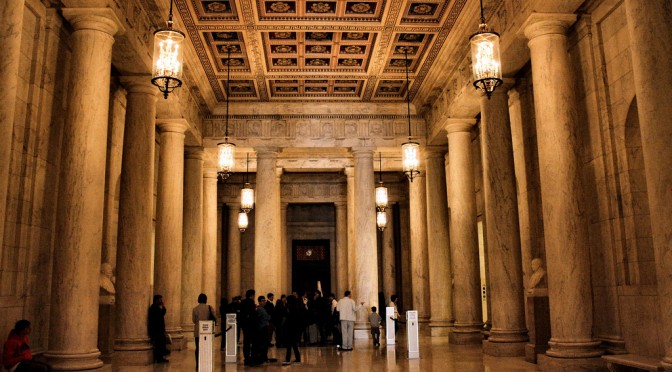Today, the Supreme Court will hear a case with huge implications for public sector unions. The case is Friedrichs v. California Teachers Union, and at issue is the question of whether members of public sector unions can be required to pay dues to support union efforts.
Over at Gawker, Hamilton Nolan breaks it down (Today They Try to Break the Public Unions):
If you are a government employee in a unionized workplace—a teacher, for example, belonging to a teachers union—you and all of your colleagues pay a set fee to the union, to cover the costs of the union’s work to negotiate a contract that you work under. This is simply the principle of everyone paying their fair share for work that benefits everyone. If you are a teacher and you happen to dislike teachers unions for some political reason, you are not required to be a member of the union; if you do not want to be a member of the union, you cannot be required to pay fees to cover strictly political activities that the union undertakes, like lobbying or political donations to favored candidates. But since the union negotiates the contract that covers everyone, you are still required to pay your fair share fee, called an “agency fee,” to cover bargaining costs.
The Friedrichs case aims to do away with the requirement that those who enjoy the benefits of public union contracts pay an agency fee to cover the cost of getting those contracts in the first place. Why? The legal argument in the case is that all union activity is inherently political, even contract negotiations, and therefore requiring non-members to pay fees to cover bargaining costs still amounts to compelling them to pay for political speech that they disagree with. Because public sector union bargaining involves government spending priorities and whatnot, the plaintiffs say, it is political, and the decision to support it with fees should be purely a choice, rather than a requirement—even if someone is reaping the benefits of the contract the union negotiated for them.
Unions point out the very obvious problem with this idea, which is that it allows “free riders” to get all the benefits of union membership without paying any of the costs. In this sense it would be akin to a local government telling its citizens they only have to pay local taxes to collect garbage and repair roads and clean the streets if they agree with the government politically. It would allow plenty of people to opt out of paying, but still enjoy all of the benefits that the taxes pay for. And if enough people chose to be free-riding leeches rather than voluntarily good taxpaying citizens, it would only be a matter of time before such a government weakened or collapsed.
Read more at Gawker.



